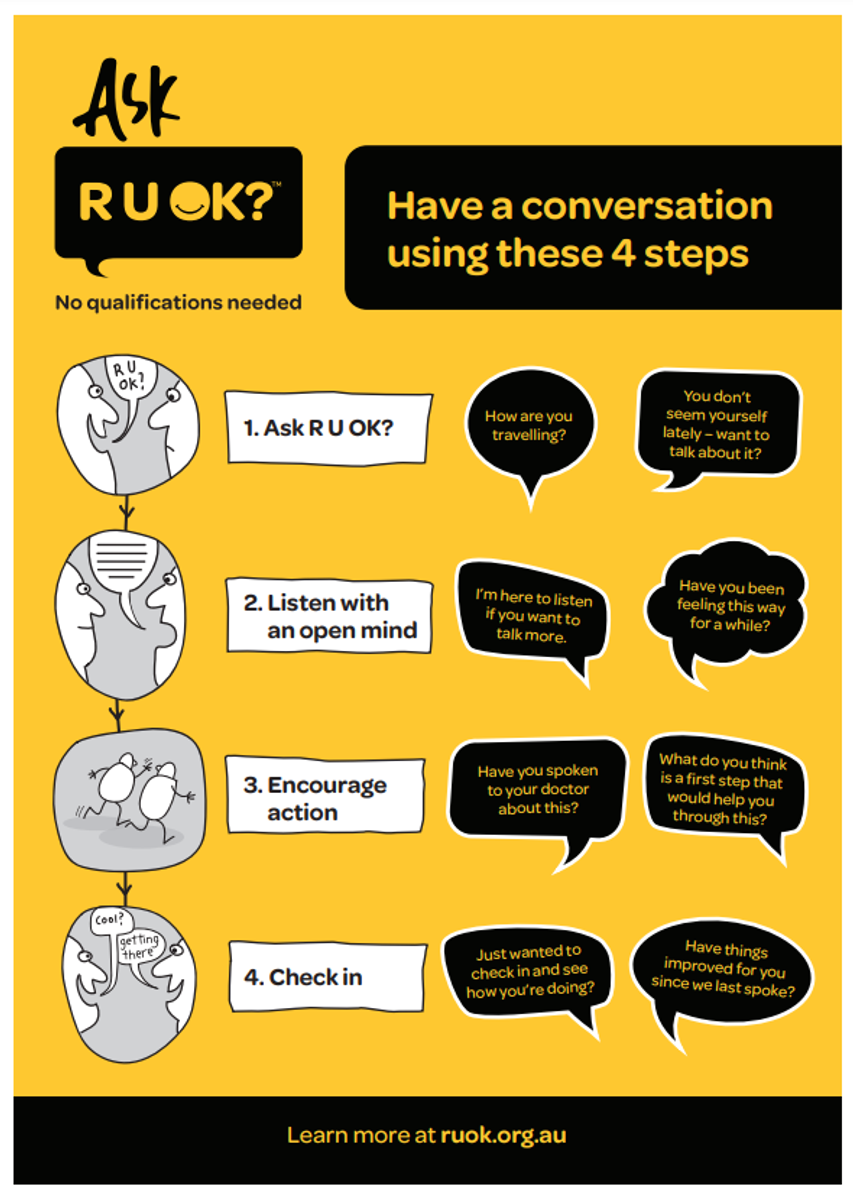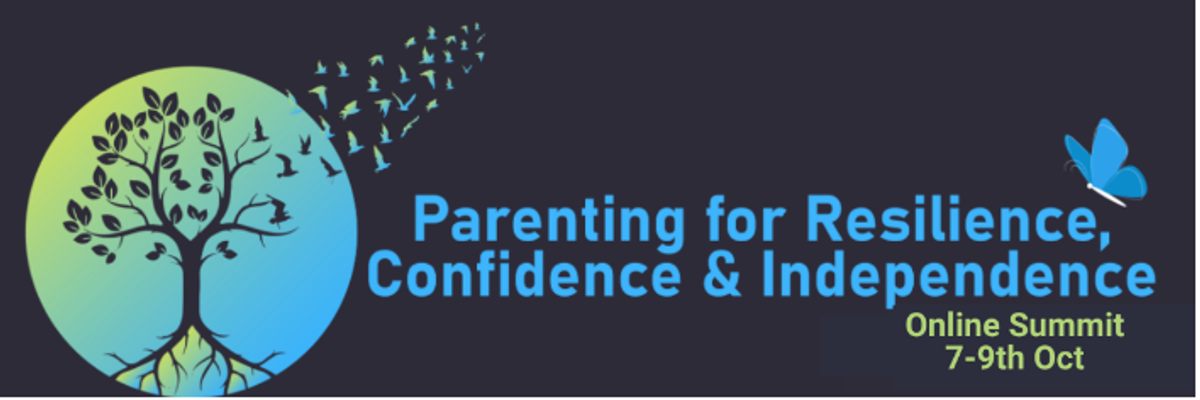Thursday 8th September was RU OK? day, however, everyday is an opportunity to check in with loved ones.
Got a feeling that someone you know or care about it isn’t behaving as they normally would? Perhaps they seem out of sorts? More agitated or withdrawn? Or they’re just not themselves. Trust that gut instinct and act on it. Learn more about the signs and when it's time to ask R U OK?
By starting a conversation and commenting on the changes you’ve noticed, you could help that family member, friend or workmate open up. If they say they are not OK, you can follow the conversation steps to show them they’re supported and help them find strategies to better manage the load. If they are OK, that person will know you’re someone who cares enough to ask.
How to check in with someone
While you might be nervous to ask someone if they’re okay, the question itself is really simple.
Here’s a few easy steps you can follow to ask someone how they really are:
- Practice asking the question
When you’re by yourself, ask the question out loud: Are you okay, Max?
Getting comfortable with asking the question can reduce the nerves you may be feeling about asking.
- Ensure sufficient time and privacy to talk
Before you ask the question, make sure both you and the person have enough time for a good chat – you don’t want this conversation to be rushed. Also make sure you ask in a private space, so that the person can feel more comfortable to speak freely without someone overhearing their response.
- Ask the question
Some ways to ask are:
Are you okay?
How are you, really?
Or you may like to precursor the question with a statement that shows your concern for them, such as:
I’ve noticed you’ve seemed down recently, are you okay?
- Listen
If the person isn’t doing okay, sometimes the most important thing they need in that moment is for someone to listen to them. Don’t try to fix their issues. Don’t try to compare their issues or feelings with your own. Just listen.
Having someone listen and acknowledge their struggle can be a tremendous help. Sometimes we just need a friend, rather than a ‘fixer’.
- Ask about suicidal thoughts
This one can be even more nerve wracking to ask, but remember it’s better to ask than to find out when it’s too late.
Ensure you don’t sound judgemental when asking the question, and avoid saying things like:
Are you thinking of committing suicide? – This makes it sound like a crime.
You’re not thinking of doing anything stupid are you? – No one will admit to this because no one wants to feel stupid!
Being judgemental can hinder your open and honest conversation with the person.
If the person has admitted to having suicidal thoughts, you can also ask them:
Have you made plans to take your life?
Asking this question can give you a better understanding of how at-risk the person is, and can better guide you on what to do next.
If the person is having suicidal thoughts, it’s important to seek professional help as soon as possible.
If the person has stated that they have made plans for suicide, we recommend calling 000.
Looking after your own mental health
Being there for someone else during a difficult time in their life can be tolling on our own mental health.
There is no shame in asking for help if you are feeling down, stressed, or helpless. In fact, it’s completely normal to feel these things when someone we care about is going through a difficult time.
Remember to:
- take time out to check in with yourself
- look after your body
- ensure you’re getting enough sleep
- make time for fun activities or to do things that make you happy
- reach out to a friend, a family member or a professional for a chat or for support
Have a look at the links below for tips on starting what might be a difficult conversation.
A simple conversation that could change a life - https://www.ruok.org.au/how-to-ask
Free Parent Education - Designed for Parents by Parents
Friday 7th - 9th October 2022
Parenting for Resilience, Confidence & Independence
The world is literally changing so fast and so is the face of parenting. Whether you are navigating anxiety, stress and overwhelm, or looking for ideas to be proactive with your child, ways to promote resilience, confidence and independence. An event has been created for you! The Parenting Online Summit is designed to give you practical, simple to implement ideas and strategies to create better relationships with your child, be proactive rather than reactive and grow your child to be resilient, confident and independent.
3 days and 3 themes with 21+ international and national speakers including Dr Justin Coulson, Megan Gallagher, Sarah Kesty, Stephanie Pinto, Michael Ray, Anita Prendergast, and so many more...Topics include:
- Empowering Your Child to Self-Advocate
- How to Combat Toxic Perfectionism
- BE CALM in the Tough Moments
- Raising Financially Smart Children
- The Brain-Food Connection
- From Protection to Empowerment
- How Not to Lose Your Cool
- Reframing fatherhood and masculinity
- The complex world of children's friendships
- Building Confidence in Kids
- Building Loving Foundations
- Managing Emotions with Emotional Intelligence
- Bully-Proof Your Kids
- and so much more
https://www.spectrumeducation.com/parenting-summit-22-home






